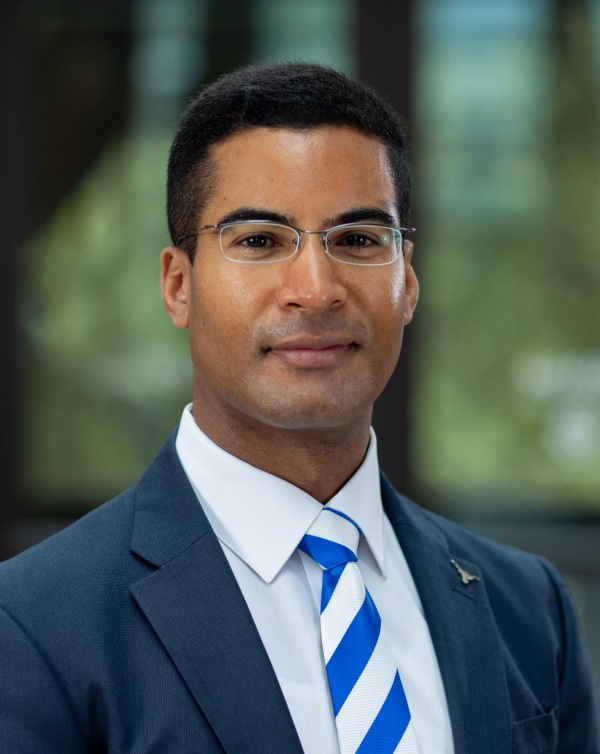Featured Guest
You’ll find this guest among our growing roll of Urban Champions.
-

Richard Albert
Professor, University of Texas
-

Marianne Meed Ward
Mayor of Burlington
-

Julianna Charchun
City of Edmonton Chief of Staff
-

Doug Earl
Journalist, Charter City Toronto
5 Key
Takeaways
A roundup of the most compelling ideas, themes and quotes from this candid conversation
1. The Covid-19 Factor: Highlighting the Limitations of City Authorities and Powers
The pandemic has shone a spotlight on the difficulties facing municipalities in meeting the needs of residents given the powers and authorities at their disposal. Mayor Marianne Meed Ward and Richard Albert give examples from Burlington, Ontario, and Austin, Texas, where local attempts to introduce mask bylaws and social distancing orders have been superseded by orders from provincial and state governments. In Burlington, because it wasn’t within the municipality’s power to impose a mask bylaw, the local government had to re-imagine and re-interpret legislation and attach a mandatory mask requirement to business licencing. Says Burlington Mayor Marianne Meed Ward, “The arrangement that municipalities have within the federation isn’t working. It hasn’t worked for a very long time. And we can’t wait any longer. Now that we have this pandemic, we have seen how devastating it can be [for municipalities not to be recognized as an equal order of government].”
2. Charter Cites: A Pathway to Municipal Autonomy
Doug Earl argues that the challenges facing municipalities long precede the COVID-19 pandemic. “The truth is that cities have no powers. It’s not a question that cities have some powers and they need more powers. It’s that they don’t have any powers under our Constitution when it comes to municipal affairs.” He cites examples from Ontario, where the provincial government has cut the size of Toronto’s city council, changed and cancelled LRT routes in Mississauga and Hamilton, made changes to land use planning, and cut provincial contributions to municipalities. In response, a city charter would write down what powers, responsibilities, authorities, resources and protections a city has. He suggests a pathway to achieving it is through a single province constitutional amendment (Section Forty-Three amendment).
3. Re-Think the Allocation of Powers: Provincial Constitutions
Richard Albert proposes an alternative that would not require a constitutional amendment: provincial constitutions. The Canadian Constitution authorizes Provinces to create, codify, and formalise their own constitutions. In this process, he suggests, a Province could devolve new powers to municipalities in one-size-fits-all or targeted ways. This is possible “without having to get the approval of the Parliament of Canada through Section Forty-Three [and] without having to risk run the risk of being held hostage in those negotiations. Let the premier do it in consultation with the mayors.”
4. The Edmonton City Charter File: From Negotiation to Dissolution
According to Julianna Charchun, the last ten years of intergovernmental negotiations about a city charter in Edmonton has seen the involvement of three provincial governments, multiple Premiers, and three memorandums of understanding. Most recently, ten months of intensive negotiations led to a fiscal framework tying new infrastructure dollars to the provincial economy (acknowledging the critical role that cities play in provincial and federal economies), a negotiated list of policy tools and powers for cities, and a negotiated pot of money for the Edmonton Region. However, following the provincial election, “[In the] first budget, city charters disappeared. The fiscal framework was gone. And the new framework for all municipalities is not anywhere close to what we negotiated. There was no engagement or conversation, or even, frankly, a heads up that that was going to happen. So that’s where we stand after about a decade of work.”
5. Cities are leading the charge
Says Charchun, regardless of the powers and authorities at their disposal, cities are going ahead and leading the charge on the biggest challenges facing our cities. For example, in Edmonton, local government has made it a priority to tackle homelessness. “It’s not our jurisdiction and it’s not what property taxes were meant to do. But we feel so compelled. It has been unanimously endorsed by city council time and time again…It doesn’t matter that the provincial government is responsible and that the federal government has the money, people expect us to do something about it and we expect ourselves to do something about it.” She emphasizes the importance of aligning around priorities across orders of government going forward.
Full Panel
Transcript
Note to readers: This video session was transcribed using auto-transcribing software. Manual editing was undertaken in an effort to improve readability and clarity. Questions or concerns with the transcription can be directed to events@canurb.org with “transcription” in the subject line.
Full Audience
Chatroom Transcript
Note to reader: Chat comments have been edited for ease of readability. The text has not been edited for spelling or grammar. For questions or concerns, please contact events@canurb.org with “Chat Comments” in the subject lin
From Canadian Urban Institute: You can find transcripts and recordings of today’s and all our webinars at https://canurb.org/citytalk
12:01:15 From Canadian Urban Institute : Welcome! Folks, please change your chat settings to “all panelists and attendees” so everyone can see your comments.
12:01:32 From Canadian Urban Institute : Attendees: where are you tuning in from today?
12:01:47 From Tim Grant : I’m Tim Grant in Toronto
12:01:52 From sue uteck to All panelists : Hello from Halifax!
12:02:11 From Luis Silva : I’m Luis Silva in Toronto.
12:02:15 From Greg Murphy : Greg Murphy from London Ontario
12:02:18 From Kirsten Goa : Kirsten Goa, I’m in Edmonton.
12:02:31 From Morgan Vespa : Hello! Joining from Treaty 1 territory and the traditional homeland of the Metis Nation, Winnipeg, MB
12:02:39 From Pooja Kumar : Pooja Kumar, Charlottetown
12:02:45 From Marg Krutow to All panelists : Marg Krutow – Toronto and Wasaga Beach
12:02:46 From Beth Levy to All panelists : I’m Beth Levy in Toronto
12:02:49 From Howard Green : Hi. Howard Green from Toronto.
12:02:53 From Leslie Forge to All panelists : Leslie Forge in Toronto
12:02:55 From Roland Dorsay : In Ottawa
12:03:07 From John Ryerson : John Ryerson Toronto
12:03:44 From Robert Brocklebank : Bob Brocklebank in Ottawa
12:04:10 From Jimmy Johnson to All panelists : Goodday,everybody
12:05:07 From Dan Fewings : Norfolk County, Ontario
12:05:36 From Dan Fewings : Dan Fewings
12:06:22 From Canadian Urban Institute :
Doug Earl
Charter City Toronto
@chartercity_TO
Mayor Marianne Meed Ward
Mayor of Burlington
@MariannMeedWard
https://www.linkedin.com/in/mariannemeedward/
Richard Albert
Professor, University of Texas
@RichardAlbert
https://www.linkedin.com/in/richardalbert/
Julianna Charchun
Chief of Staff, Office of the Mayor, City of Edmonton
@Julie_Charchun
https://www.linkedin.com/in/julianna-charchun-006a371b5/
12:07:40 From Laura Servage : Laura Servage, Hogtown…but proud former Edmontonian!
12:08:27 From Marg Krutow : Marg Krutow, Toronto and Wasaga Beach
12:08:42 From Lester Brown to All panelists : Toronto.
12:09:06 From Jimmy Johnson to All panelists : well done mary r rowe
12:09:47 From Canadian Urban Institute : Reminding attendees to please change your chat settings to “all panelists and attendees” so everyone can see your comments. Thanks!
12:10:59 From Mary Ann Neary to All panelists : Mary Ann Neary from Toronto
12:11:00 From Lester Brown : Toronto
12:12:13 From Alan Kasperski to All panelists : Alan Kasperski from Stratford, Ontario … greetings all.
12:12:21 From Dan Fewings : Where was the information on City Watch that Mary just alluded to?
12:12:56 From Alan Kasperski : Alan Kasperski, Stratford, Ontario
12:13:16 From Beth Levy : Beth Levy in Toronto
12:13:25 From Canadian Urban Institute : https://canurb.org/initiatives/citywatch-canada/
12:13:58 From Bianca Wylie : Bianca Wylie in Toronto
12:13:59 From Sonja Greckol : Sonja Greckol, Toronto
12:14:17 From Dan Fewings : Thanks CUI
12:14:54 From Geoff Kettel to All panelists : Geoff Kettel Toronto
12:14:58 From Mary W Rowe : www.citywatchcanada.ca
12:20:27 From sue uteck : Halifax has their own charter but the number of changes requested are often ignored, dismissed or takes 2 years to implement a change.
12:21:41 From Laura Servage : Sue, a Charter with no teeth then…
12:21:47 From Lester Brown : How would a charter improve on or change the Toronto Act? Would the power still not rest with the province.
12:22:46 From Alan Kasperski to All panelists : as the COT Act is provincial legislation, it can be changed by Queens Park at anytime.
12:23:11 From Canadian Urban Institute to Alan Kasperski and all 12:23:46 From Alan Kasperski to All panelists : further, the COT specifically bars the city from a share of sales and income taxes.
12:25:04 From Venczel Gloria : Does a new City Charter not require a constitutional amendment?
12:25:18 From Alan Kasperski : the COT is provincial legislation – hence it can be changed by the provincial government. The COT also bars the city from a share of sales and income taxes.
12:26:26 From Alan Kasperski : @Gloria. question is “which constitution”? Federal and Provincial. either are options.
12:27:50 From Lester Brown : alan Are you talking about a Federal Charter and is that possible?
12:28:48 From Alan Kasperski : a federal amendment or writing the idea of a city charter into a provincial constitution.
12:29:40 From Purshottama Reddy to All panelists : Why does a municipality need a charter – it has certain pre – determined powers and functions in terms of which it can act ? Does every municipality have to develop a charter. ? Municipal governance is going to become quite complicated.
12:29:45 From John Ryerson : Wouldn’t one province buying into S 43 be the ice breaker?
12:29:58 From Alejandro Perales to All panelists : Is the lack of consensus amongst federations evidence of a need to step away from “one size fits all” policies and measures? What would work in Edmonton, would not work on rural Alberta. Is this an issue of scale in policies and mandates?
12:30:42 From Venczel Gloria : @Alan- there are existing City Charters, ie, City of Vancouver . Someone brought it up….
12:31:39 From John Ryerson : scary
12:31:54 From Danielle Tivoli : Really interesting segment Richard!
12:32:31 From Dan Fewings : This is fantastic and informative! That was brilliant Richard! Great first round gang!
12:32:40 From Alan Kasperski : akasperski@masseycollege.ca
12:32:42 From Luis Silva : B.C. has its own provincial constitution. The provincial legislature has the authority to amend/abolish its provincial constitution. See: https://www.bclaws.ca/civix/document/id/complete/statreg/96066_01
12:32:49 From Lester Brown : Alan – are the other charters under section 43 or just in agreement with provinces.
12:32:51 From Christine Drimmie : How often could such a provincial constitution be amended? Would we just have each new government amending it to match their party values?
12:32:55 From Alan Kasperski : www.masseycitiessummit.ca
12:33:37 From Vincent Yong to All panelists : little napoleons will be formed. Richard, what is the check and balance?
12:33:59 From Laura Servage : I wonder though… would a provincial constitution make any difference to the core problem of getting provincial buy-in?
12:34:04 From Joy Connelly : Interesting idea, Richard. I’m just concerned that some of the “values” embraced by provinces are ways of avoiding Canadian Charter of Rights, etc.
12:34:33 From Vincent Yong to All panelists : we need people in power to be passionate and honest..just simple…people will be behind good people.
12:34:33 From Laura Servage : Good point Joy. Relationship between any provincial constitutions and the Charter would have to be clear.
12:35:29 From Alan Kasperski : Section 43 allowed single province amendments to the federal constitution. none of the times it has been used was the subject city charters.
12:35:35 From Christopher Wilson : Chances of getting the Province to draw a charter devolving powers to the City of Toronto are about the same as Premier Ford abandoning his core support group the land developers.
12:36:01 From Kirsten Goa : When our provinces are actively undermining cities while downloading responsibilities any suggestions for how to convince a provincial gov that is consolidating power, to then share it?
12:36:25 From Howard Green : Why would negotiating a provincial constitution be less complicated than a section 43 amendment with the Parliament of Canada after the province and a large city like Toronto negotiated and agreed on a Charter?
12:36:32 From Vincent Yong : Good point Mayor Marianne… accountability. Power with responsibility.
12:36:54 From Nevena Dragicevic to All panelists : Somewhat related to Joy Connelly’s point – Is there a danger with having many different municipal and/or provincial charters in creating more inequities across Canadian cities? Thinking about those that end up with less or more powers, that have less capacity and need more provincial and federal support.
12:37:18 From Alan Kasperski : unless, Christopher, there were more and more Mayors, like the Mayor of Burlington, who start campaigning for more and real local autonomy. ,
12:37:45 From Canadian Urban Institute to Nevena Dragicevic and all panelists : Hi Nevena. We love your comments and questions in the chat! Share them with everyone by changing your chat settings to “all panelists and attendees”. Thanks!
12:38:00 From Joy Seth : Joy Seth: The challenges of the political party in power provincially not willing to devolve powers as we’ve seen with Doug Ford. Also the larger issue of claim to relationships with businesses and the issue of taxation or benefits to companies.
12:38:20 From Nevena Dragicevic : Somewhat related to Joy Connelly’s point – Is there a danger with having many different municipal and/or provincial charters in creating more inequities across Canadian cities? Thinking about those that end up with less or more powers, that have less capacity and need more provincial and federal support.
12:38:47 From Alan Kasperski : Howard – it wouldn’t … but a codified provincial constitution would involve much much more than city charters … election systems for example.
12:38:56 From Joy Connelly : My worry wasn’t power at the City level! I find cities way more progressive than provinces. It’s the concept of a provincial charter that spooked me.
12:39:24 From Christine Drimmie : We in Ontario have a provincial government that has pointedly stripped away their accountability officers. Municipalities now do have several accountability officials in place…integrity commissioners for example
12:40:39 From Christopher Wilson : Doug, You’re right. For the last fifty years the decisions about city growth in Toronto has ben made by Europeans, mostly Italian builders
12:40:56 From Laura Servage : A more extended conversation outside of the mechanisms to create a charter…that most folks understand democracy (accountability and power) in direct and local terms… yet cities as they sit have very little power to work with grassroots/local democracy and get anything of substance done.
12:42:16 From John Scott Wintrup to All panelists : Local Autonomy is too often being characterized as idyllic. When there is no outside tribunal such as a municipal board, there is no check on local power affecting land owners’ rights.
12:42:58 From Laura Servage : So part of public education/buy-in is making those connections to more local empowerment for citizens, not just the muni governments themselves.
12:43:33 From Luis Silva : School boards in Ontario, Alberta and Saskatchewan have constitutional status under Section 93 of the constitution. School boards in Quebec and Newfoundland lost their constitutional status in 1998 by a constitutional amendment between a resolution of the provincial legislature and Parliament. By using Section 43, cities can be elevated to the level of school boards in Ontario, Alberta and Saskatchewan.
12:44:37 From Christopher Wilson : The basic problem devolving powers to the city is the calibre of political representatives at the city or town level is… how do I say this without being rude to anyone on this fine panel — preoccupied with local dynamics and largely unaware or unresponsive to anything else. Basically what the cities want is the ability to tax and the ability to run deficits.
12:44:49 From Doug Earl : If anyone wants to ask questions about a City Charter or constitutional protection, please contact us at chartercitytoronto@gmail.com or see our website www.chartercitytoronto.ca
12:45:32 From Laura Servage : I don’t know Christopher… there’s some pretty questionable calibre out there at higher levels too!
12:46:24 From Howard Green : Thanks Alan, and seems a simpler mechanism like a 43 amendment that protects the charter from unilateral provincial interference aka Bill 5 in Ontario or Bill 218 in the municipal electoral process would be better than trying to negotiate a Constitution.
12:47:22 From John Ryerson : Calibre of elected has been greatly weakened by the lack of local media to hold them accountable
12:47:38 From Venczel Gloria : As with the former Ontario Municipal Board which truncated municipal democratic process for planning and development approvals, how can the checks and balances for democratic decision making be ensured in any future changes? How can a new green deal for cities be protected from ideological swings?
12:47:39 From Dan Fewings : Very true John!
12:48:03 From Gail Greer to All panelists : I doubt if any province will agree to lose any powers over the most populace parts of their territories. Working at the federal constitutional level would give cities a big brother in making this reform.
12:48:16 From Christopher Wilson : Both fair comments.
12:48:38 From Alan Kasperski : Any sec 43 amendment still needs to be approved by both the federal AND provincial governments. a provincial constitution does not include the feds.
12:48:50 From Kirsten Goa : George Lakoff talks about the cognitive framing of progressives and conservatives that explains in part why subsidiarity would be espoused by conservatives, but consolidation of power is the reality.
12:49:35 From Julianna Charchun to All panelists : Tks Kirsten I’ll check that out!
12:50:27 From Caryl Arundel to All panelists : Richard – FYI, Kirstin Good (2019) has done some work advocating for provincial constitutions and formal provincial recognition of municipalities.
12:50:32 From Laura Servage : Interesting, Kirsten. Got a link?
12:50:33 From John Ryerson : 100% on Lakoff
12:51:02 From Julianna Charchun : Tks Kirsten I’ll check that out!
12:51:59 From Bianca Wylie : YES
12:52:07 From Kirsten Goa : His book Don’t Think of an Elephant is short and I found it really helpful for explaining these disconnects. It’s American but the ideas can be applied across issues and jurisdictions.
12:52:08 From Caryl Arundel to All panelists : Good, K. R. (2019, November 26). The fallacy of the “creatures of the provinces” doctrine: Recognizing and protecting municipalities’ constitutional status. Institute on Municipal Finance and Governance. https://tspace.library.utoronto.ca/bitstream/1807/98264/1/imfgpaper_no46_recognizingandprotectingmunicipalities_kristingood_nov_26_2019.pdf
Good, K.R. (2019, November 29). Municipalities are integral to Canada’s constitutional design. We need to empower them and stop viewing them as “creatures of the provinces.” Policy Options. https://policyoptions.irpp.org/magazines/november-2019/municipalities-deserve-more-autonomy-and-respect/
12:52:15 From Pooja Kumar : If anyone is interested, PEI has a long-standing history of making wide-sweeping changes to local governments without talking to them (including historically changing school boards into municipalities and in 2017 replacing an old local governance law with a more modern one). 2018 was the first year that all local governments on PEI were required to use a secret ballot for municipal elections. Just noting this to point out the obvious thing that municipalities across the board often don’t have the capacity to do what they need to to ensure accountability while residents often expect a consistent approach across a geography like a sub-national jurisdiction.
12:52:49 From ronni rosenberg to All panelists : public ahead of politicians….expanding the “overton window…”
12:53:27 From Bianca Wylie : (my yes was to engaging more of the public service in these conversations, however that can be done within constraints of their roles)
12:53:53 From Howard Green : Doug just added further details to my comments and I think a federal Parliament would be politically challenged if they failed to act in support of a single province amendment to a City Charter that both the province and city agreed to. They have approved 8 times already and suspect polling on a protected Charter powers for cities especially in large cites would be quite supportive.
12:54:33 From Christopher Wilson : The first duty of every politician at every level is to attain power. The second duty is to retain it. Political power has at best only incidental relationship to the benefit it confers on the electorate. At the municipal level because so few people vote this is even more starkly the case . As a taxpayer simpliciter I abhor additional levels of government as all they do is spend more money hiring more civil servants to enact or enforce more often duplicitous legislation.
12:54:51 From Susan Fletcher to All panelists : Thank you Mayor Marianne for saying “residents”. Far too many folks say “citizens” which leaves out the non-status immigrants, migrant workers, refugees, etc.
12:55:31 From Venczel Gloria : Can someone address the issue of democratic checks and balances of wrt a Provincial Constitution? Without resident buy-in through the fine scaled democratic municipal process, you run the risk of more people opting out of the ” social contract ” and municipalities /provinces losing ” social license ” for rethinking cities, a new green deal for cities?
12:55:50 From Alejandro Perales : What if Charter Cities were to be a temporary measure in times of crisis instead off permanent mandates? Would this expedite their nomination and ratification at both the provincial and federal level?
12:56:58 From John Ryerson : Sounds like we need a whole lot of “pilot projects” to bring evidence to the table and away from ideology
12:57:27 From Bianca Wylie : yes to moral obligation – wish I heard that phrase more often
12:57:39 From Kirsten Goa : The City of Edmonton’s leadership on this has been fantastic.
12:57:58 From Lester Brown : I will email a question but interested in where Sec 43 has been used. I believe it was used on Quebec and Newfoundland schools but not sure of other uses. may be difficult when it ocmes to City powers which are not province wide.
12:58:05 From Christine Drimmie : In Ontario housing was devolved to cities/regions by the Harris government, but we continue to struggle with lack of funding and no revenue stream locally to support it.
12:59:11 From Kirsten Goa : We just had this back and forth for our bylaw officers being able to enforce mask bylaws
12:59:47 From Christine Drimmie : Power to act has to be accompanied by authority/tools to raise the revenue to support it.
13:00:06 From Canadian Urban Institute : You can find transcripts and recordings of today’s and all our sessions at https://www.canurb.org/citytalk
Keep the conversation going #citytalk @canurb
To support CityTalk and the Canadian Urban Institute’s other city building initiatives, please donate at www.canurb.org/donate.
What did you think of today’s conversation? Help us improve our programming with a short post-webinar survey – https://bit.ly/2L09bBP
13:00:18 From Lyle Halcro to All panelists : love hearing Julie’s and Marianne’s views and passion…politicians with hearts in the right place. thanks for your work. Greg and Richard’s insights and spunk…amazing. keep the faith.
13:00:29 From Joy Connelly : brilliant panel. A great session. Now I want to follow up on your websites! And I’m someone who knows zip about constitutional issues
13:01:14 From Marie-Josée Houle : Thanks for your comments, Julianna! I work in housing loss prevention and advocacy. Homelessness and poverty are results of bad policies. These are policy issues. That being said, I have noted over the past few years that many provincial governments are kicking their financial and bureaucratic responsibilities upstairs (to the Feds) and downstairs (to Municipalities). Is it appropriate for a municipality to invest in housing? They are paying for the result of homelessness, so there is no choice, but…
13:01:22 From Lester Brown : Thanks for this great discussion. Do agree strongly in more City powers but wonder about the political mine field to get there. Cities, however, need more powers.
13:01:36 From Vincent Yong : good honest panel..people first and accountability..At least in Canada, we can have discussion …keep on your good work
13:01:40 From Kirsten Goa : 👍
13:01:48 From Vincent Yong : Thank you.
13:01:49 From Marie-Josée Houle : Bravo everyone! Thank you!
13:01:50 From Dan Fewings : Great job Moderating the discussion and to the fabulous panel!
13:01:55 From Pooja Kumar : Thank you!
13:02:01 From Bianca Wylie : thanks all 🙂
13:02:01 From Laura Tate to All panelists : Thank you. A thoughtful discussion.
13:02:03 From Luis Silva : Thanks to the panel. It was a great and informative discussion. Great job!
13:02:05 From Howard Green : great session
13:02:17 From Kirsten Goa : Thank you! This was fantastic!
13:02:17 From Kathleen Aldridge to All panelists : Very informative— thank you
13:02:23 From Alexandra Flynn : Thanks all! That was terrific



